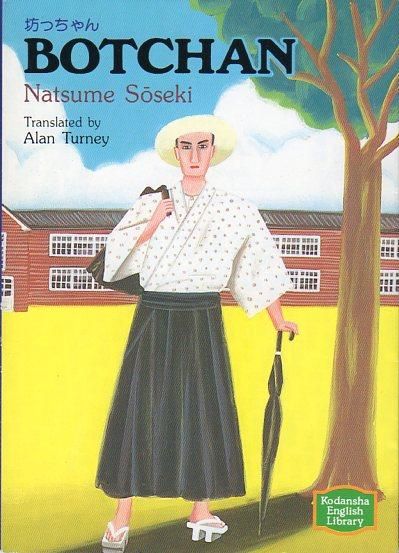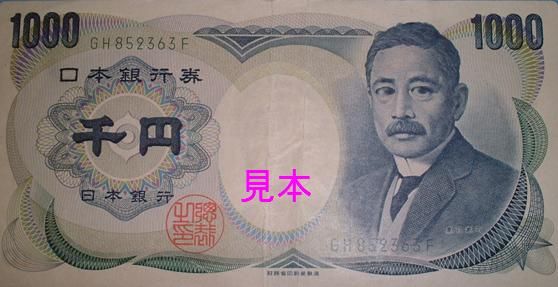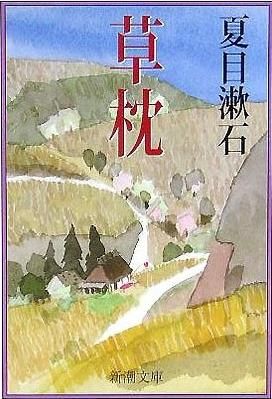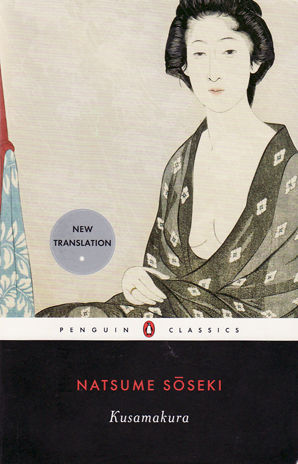Sōseki & Glenn Gould(PART 1 OF 3)


Natsume Sōseki (夏目 漱石)
(February 9, 1867 – December 9, 1916)
He is widely considered to be the foremost Japanese novelist of the Meiji period (1868–1912).
He is best known for his novels such as "Kokoro," "Botchan," "I Am a Cat" and his unfinished work "Light and Darkness."
He was also a scholar of British literature and composer of haiku, kanshi, and fairy tales.

(kiyo003.jpg)
From 1984 until 2004, his portrait appeared on the front of the Japanese 1000-yen note.
In Japan, he is often considered the greatest writer in modern Japanese history.
He has had a profound effect on almost all important Japanese writers since.

(1000yen.jpg)
In 1900, the Japanese government sent Sōseki to study in Great Britain as "Japan's first Japanese English literary scholar".
He visited Cambridge and stayed a night there, but gave up the idea of studying at the university because he could not afford it on his government scholarship.
He studied instead at University College, London (UCL).
He had a miserable time of it in London, spending most of his days indoors buried in books, and his friends feared that he might be losing his mind.
He also visited Pitlochry in Scotland.
He lived in four different lodgings, only the last of which, lodging with Priscilla and her sister Elizabeth Leale in Clapham, proved satisfactory.
Five years later, in his preface to "Bungakuron (The Criticism of Literature)," he wrote about the period:
The two years I spent in London were the most unpleasant years in my life.
Among English gentlemen I lived in misery, like a poor dog that had strayed among a pack of wolves.
He got along well with the one Leale sister, who shared his love of literature (notably Shakespeare) and spoke fluent French, much to his admiration.
The Leales were a Channel Island family, and Priscilla had been born in France.
The sisters worried about Natsume's incipient paranoia and successfully urged him to get out more and take up cycling.
Despite his poverty, loneliness, and mental problems, he solidified his knowledge of English literature during this period and returned to Japan in 1903.
After his return to the Empire of Japan, he replaced Koizumi Yakumo (Lafcadio Hearn) at the First Higher School, and subsequently became a professor of English literature at Tokyo Imperial University, where he taught literary theory and literary criticism.
SOURCE: "Natsume Sōseki"
From the Wikipedia, the free encyclopedia

Kato, I've never heard of Natsume Sōseki, nor his works.

I know... Most Canadians don't know his name.
Is he well-known in Japan?
Yes, he is. If a person doesn't know his name in Japan, he or she is not a Japanese.
Are you sure about that?
I'm absolutely sure of that. You can bet on that. From 1984 until 2004, his portrait appeared on the front of the Japanese 1000-yen note. So almost all the Japanese know his name and his face.
Can you find his books in the library?
Yes, of course, you can. Why don't you borrow one of the following books at Vancouver Public Library?

(lib21129.gif)
■"Actual Catalogue Page"

So there are 31 books written by Natsume Sōseki, aren't there?

Yes, you can read the translated version such as Kokoro, Sanshirō, and Kusamakura.

(kusamaku3.jpg)

Which one do you recommend, kiddo?

I recommend "Kusamakura (草枕)."

(kusamaku2.jpg)

Why is that?

...'Cause this book was Glenn Gould's most favorite book. When he died on October 4, 1982 at the age of 50, there were two books at his bedside: the Bible and "Kusamakura."
Did he read the book in Japanese.
No, he didn't. He read the translated version.
What does the title mean?
Literally, "Kusamakura (草枕)" means "grass pillow", which implies "camping in the wild."
How did he find the book?
Well ..., at the age of 35, Glenn Gould travelled to the eastern part of Nova Scotia, and met Professor William Foley in the train. In the course of conversation, the professor told him about the book 'cause he was greatly moved while reading it.
So, Glenn Gould bought the book, didn't he?
Yes, he did, and loved it so much so that he actually read the whole book on the phone to his sister.
No kidding!
This is a true story---one of his eccentricities.
(To be followed)